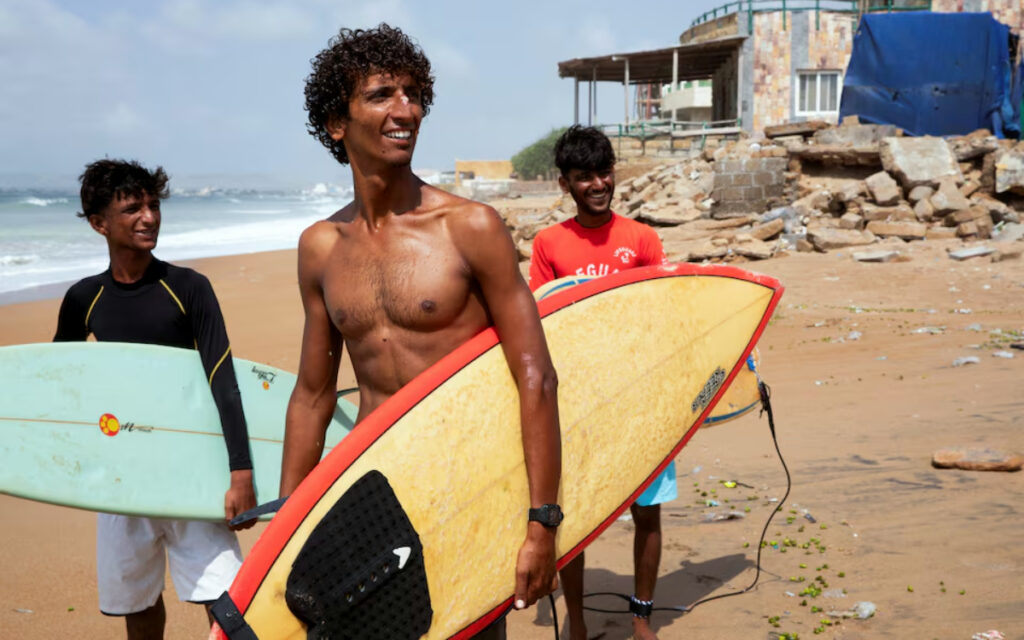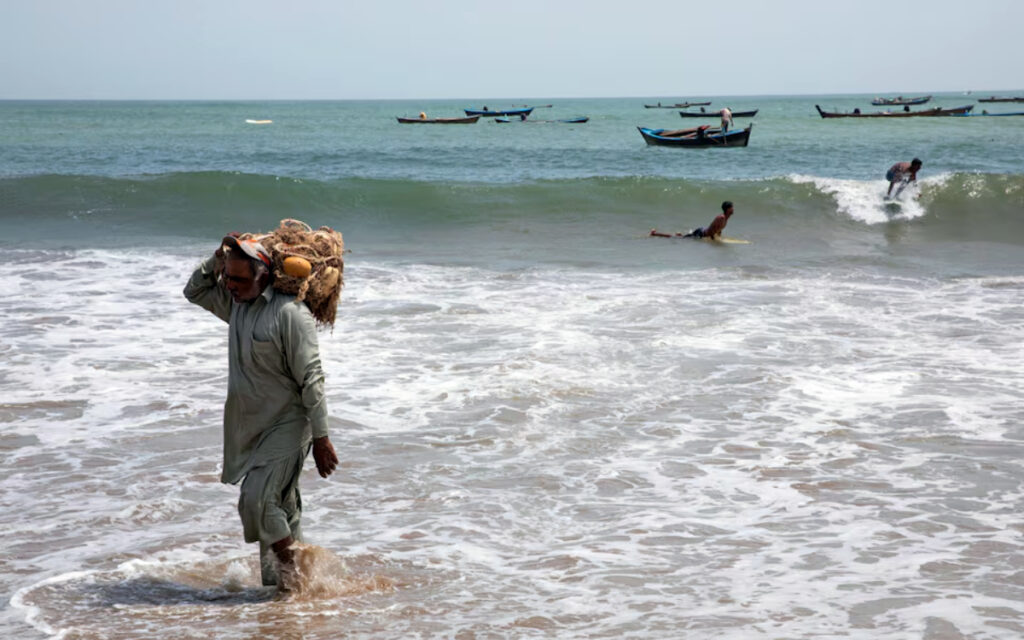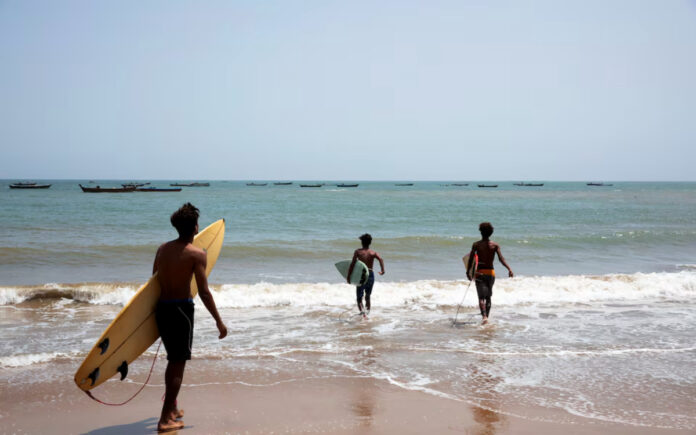Karachi: Attiq Ur Rehman is unwavering in his ambition to become Pakistan’s first professional surfer, despite his father’s concerns, scarce equipment, and the challenging waves near Karachi.
“I don’t care about the money right now. I just want to compete,” says the 21-year-old, undeterred by his father’s suggestion to turn to fishing to support his family. “It’s my surfer attitude.”
Rehman’s family belongs to a humble coastal community in southern Pakistan, where most residents rely on fishing or work as lifeguards for wealthier visitors from Karachi. His father, Muhammad Rafiq, earns around $100 a month from fishing to support their family of ten.

“I told him a thousand times (to stop surfing), but he still doesn’t listen,” said Rafiq, concerned about his son’s unconventional path.
Rehman started surfing at nine and left his job as a lifeguard to focus solely on his passion. Today, he’s the founder of the “Surfers of Bulleji,” a group that has grown to about 50 members, gaining viral popularity on social media in a country where cricket and hockey dominate.
The group attracts enthusiasts from nearby villages, some as young as eight, who gather on quiet, sandy shores near Karachi to surf when the waves align just right. One member, 24-year-old fisherman Mujahid Baloch, was inspired by surfing videos on social media and taught himself to surf. “Slowly, through watching, we learned. No one taught us,” he shared.

Despite the rough conditions along Pakistan’s 1,000-kilometer coastline, which lacks the steady waves found in nearby surf spots like Sri Lanka or the Maldives, the group perseveres. When Karachi issued a cyclone warning and advised people to stay away from the sea, Rehman and his friends eagerly headed to the beach, excited by the rare ideal surfing conditions. “The waves were ideal for us,” said Rehman.
While Pakistan is not among the 116 member nations in the International Surfing Association, members of the “Surfers of Bulleji” are inspired by world-class surfers like Kelly Slater. Watching videos of Slater, they aspire to master his skills, though access to quality gear is limited.
Also Read | Voyager-1 Reestablishes Link with Earth, Surpassing 25 Billion Kilometers
With only about 25 surfboards to share among them, the group works together to repair boards, often sourcing materials from discarded items. Occasionally, they find discarded surfboards in containers of junk brought to Pakistan from around the world, which they buy for as little as $35 and patch up with basic supplies like glue and resin. “If it breaks, we repair it. Because we don’t have surfboards here,” Baloch explained.
Also Read | Iron Man’s Warning: Downey Jr. Pledges Legal Action Against AI Use of His Image
Their resourcefulness extends even further, using pieces of foam found at sea to shape makeshift boards. “If we find more such foam, we can make our own boards here,” Baloch adds. As the group grows, local shopkeepers recognize their need for unique items and hold onto such finds for them. “Our community is getting bigger and stronger, so the shopkeepers know we will come and keep such finds safe for us,” Rehman says.



